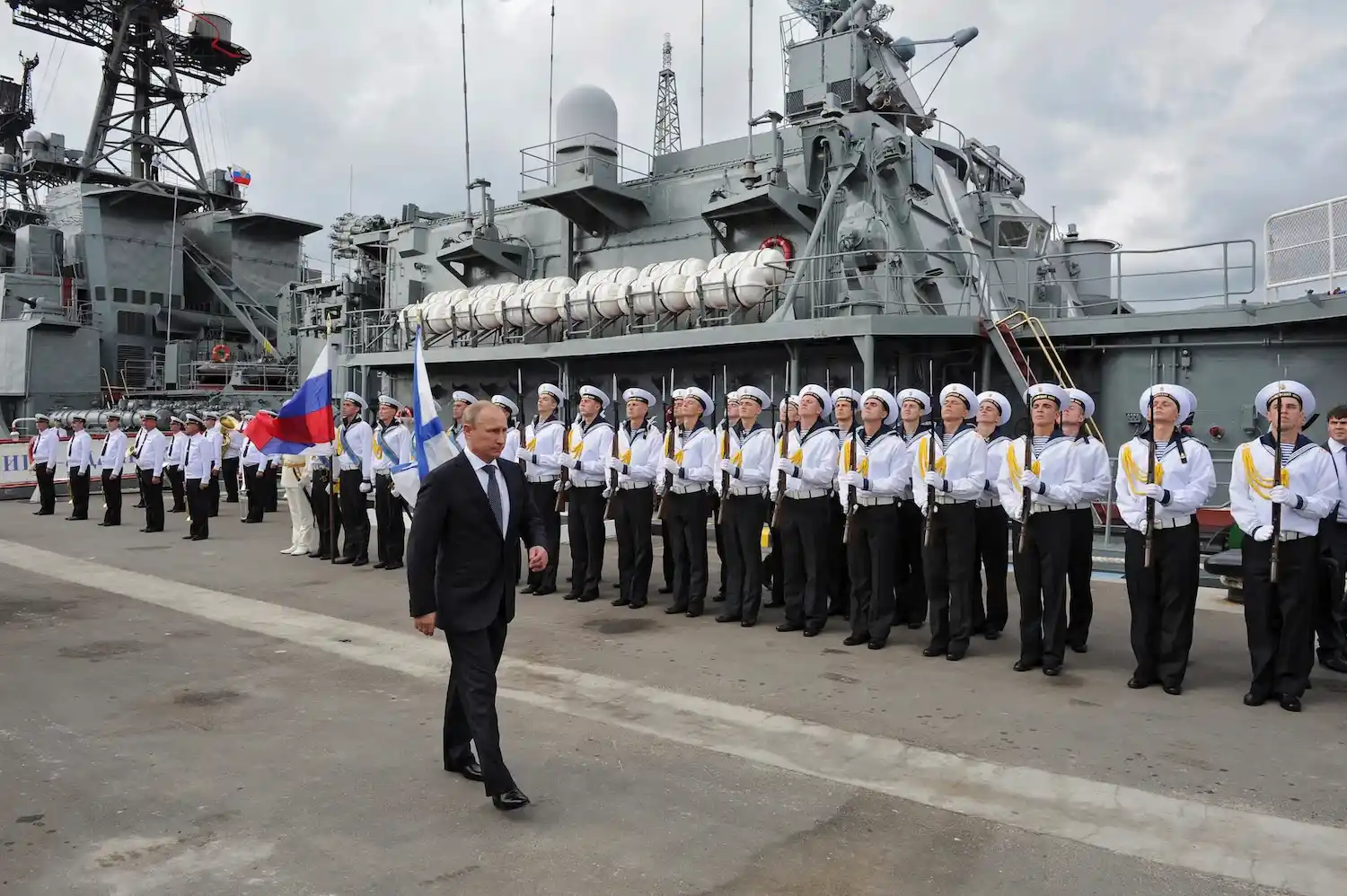The European Union has quietly launched one of its most assertive initiatives yet to counter Russia’s sanctions evasion: empowering the bloc to board and inspect vessels in Moscow’s so-called “shadow fleet.” The proposal, driven by the European External Action Service (EEAS), signals a deeper integration of maritime security, foreign policy, and energy enforcement — and could reshape global rules on the freedom of navigation.
At the heart of the EU’s plan lies an uncomfortable paradox. For two years, Europe has tried to starve Russia’s oil trade through sanctions and price caps. Yet, Moscow has rebuilt its logistics empire through a global patchwork of reflagged vessels, obscure registries, and offshore operators — a sanctions-resistant network transporting millions of barrels a day. Estimates suggest over 600 tankers now operate in this gray zone, many using flags of convenience from countries like Panama, Liberia, or Cameroon. These vessels operate outside transparency norms, turning off transponders, concealing origins, and moving oil through high-risk transfers in the Atlantic, Baltic, and Mediterranean waters.
The EU now wants to pierce this shell. The proposed framework — backed by Kaja Kallas and scheduled for approval by November’s Foreign Affairs Council — would allow pre-authorized “board and inspect” powers, negotiated bilaterally with flag states. It would, in effect, extend Brussels’ enforcement reach into quasi-extraterritorial waters under the International Law of the Sea. For a union that traditionally delegates maritime sovereignty to members, this marks an extraordinary shift toward federalized strategic authority.
The Maritime-Legal Tightrope
The effort hinges on how creatively Brussels can reinterpret the United Nations Convention on the Law of the Sea (UNCLOS). Traditionally, boarding a vessel in international waters without the flag state’s consent amounts to a violation of sovereignty. The EU’s workaround — securing bilateral pre-authorizations — mirrors U.S. counter-narcotics agreements in the Caribbean and could become a template for energy-related sanctions enforcement. Yet legal scholars warn it risks triggering diplomatic friction with neutral maritime powers, especially those dependent on ship registrations for revenue.
More profoundly, this move confronts the philosophical heart of global maritime order. If the EU claims authority to inspect ships it deems part of Russia’s “hybrid threats,” what stops future powers from doing the same under vague security pretenses? Beijing could invoke a similar doctrine to inspect “illegal” fishing vessels in the South China Sea. Washington might target Iranian or Venezuelan fleets under its own sanctions regimes. The precedent could erode the universality of “freedom of the seas” — one of the oldest norms underpinning globalization.
Hybrid Threats and the Expanding Definition of Security
The EEAS document links shadow fleet activity not only to sanctions evasion but to hybrid security threats — from potential drone launches to maritime sabotage. This broad framing aligns with NATO’s growing view of “maritime gray zones” as battlegrounds for espionage and critical infrastructure disruption. The European narrative thus goes beyond oil: it ties illegal energy logistics to intelligence, cyber operations, and the potential weaponization of the sea floor, cables, and offshore energy infrastructure.
In this context, the Boracay incident, in which French forces boarded a suspect tanker following drone incursions over northern Europe, wasn’t an isolated act. It was a field test of a future doctrine — one where energy enforcement doubles as counterintelligence.
Strategic Consequences
For Russia, this EU pivot could create friction points in maritime chokeholds from the Danish Straits to the Strait of Gibraltar. Moscow’s reflagged fleet depends on access to European bunkering and repair services, all of which could now fall under EU-wide scrutiny. For insurers and shipping intermediaries in Dubai, Piraeus, or Singapore, the message is equally sharp: sanctions evasion may soon attract physical interdiction, not just financial penalties.
Yet, the EU’s assertiveness also risks escalation. If Russian or Chinese-flagged ships resist boarding, incidents at sea could quickly turn into diplomatic crises. And while Panama’s decision to deregister sanctioned vessels gives Brussels leverage, it also highlights how deeply the EU must now depend on external registries — an uncomfortable vulnerability for a bloc seeking maritime autonomy.
Europe’s proposed power to board Russia’s shadow fleet represents the most ambitious maritime enforcement agenda since the Cold War. It blends energy security with military deterrence, economic sanctions with environmental safety. But it also redefines what “sovereignty at sea” means in the 21st century.
If successful, the EU will not just curb Moscow’s sanction-busting; it will rewrite part of the global rulebook on ocean governance. Whether that rewrite strengthens or fragments the law of the sea will depend on how powerfully — and how prudently — Europe wields this new authority.











